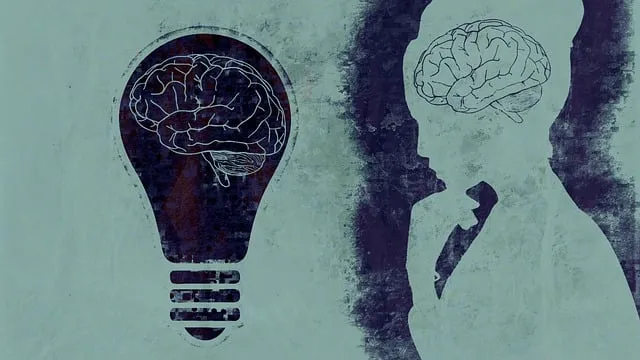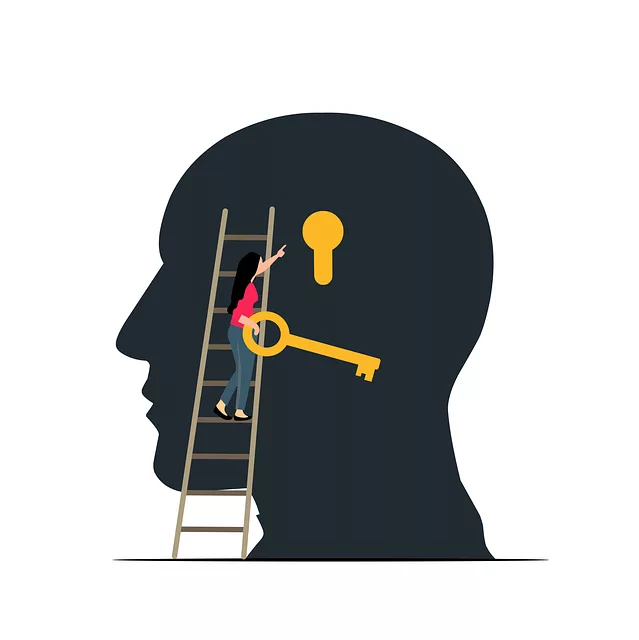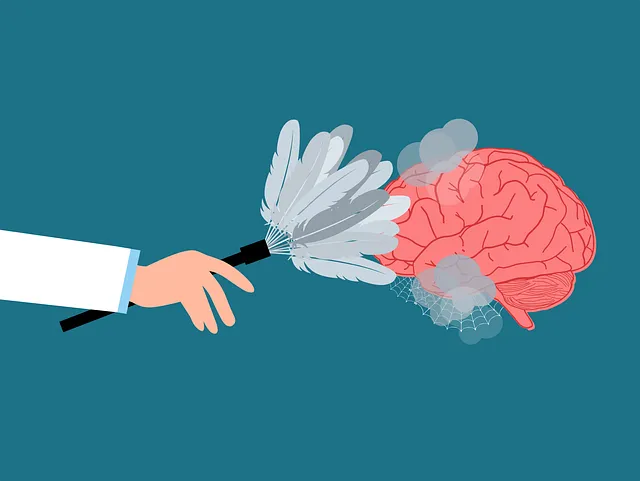Mental Health Crisis Hotlines, like those offered by superior healthcare providers like Kaiser, provide immediate support and connect individuals with trained professionals who offer confidential conversations, self-care guidance, and access to local Mental Wellness Coaching Programs. Therapists on these hotlines use evidence-based practices, crisis intervention, and de-escalation techniques to empower people with coping strategies for various mental health concerns, including anxiety and suicidal ideation. Kaiser distinguishes itself through innovative approaches like public awareness campaigns and a robust therapist network focused on burnout prevention, ensuring individuals not only survive but thrive. Accessing these hotlines is a vital step towards emotional well-being, offering 24/7 support with guarantees of privacy and anonymity to encourage open dialogue. Post-call services include easy access to trusted therapists within their network and community resources for mindfulness and self-esteem improvement, fostering long-term mental resilience and enhanced quality of life.
“In times of mental health crisis, a simple phone call can be a lifeline. Mental health crisis hotline support services play a pivotal role in providing immediate assistance and guiding individuals towards recovery. This article explores the critical function of these hotlines, highlighting their impact on vulnerable lives.
From understanding the significance of prompt intervention to delving into the expertise offered by therapists, we uncover what makes top-tier services like Kaiser stand out. Discover how their approach ensures access to superior therapists and comprehensive post-call care, emphasizing a holistic recovery journey.”
- Understanding Mental Health Crisis Hotlines: A Lifeline in Times of Need
- The Role of Therapists: Qualities and Expertise You Can Expect
- Kaiser's Approach to Mental Health Support: What Sets Them Apart?
- Accessing the Hotline: Availability, Privacy, and Anonymity
- Beyond the Call: Post-Support Care and Community Resources
Understanding Mental Health Crisis Hotlines: A Lifeline in Times of Need

In times of intense emotional distress or mental health crises, a dedicated hotline serves as a lifeline, offering immediate support and guidance. Mental Health Crisis Hotlines are accessible resources designed to provide comfort, assess urgent needs, and connect individuals with appropriate care. These services cater to a wide range of issues, from acute anxiety and depression to suicidal ideation, ensuring that those in need have a safe space to express their struggles.
Hotlines like those offered by superior healthcare providers, including Kaiser, play a pivotal role in promoting mental wellness. They offer confidential conversations with trained professionals who can facilitate self-care routine development, a key aspect of maintaining better mental health. Moreover, these hotlines may also provide information on local Mental Wellness Coaching Programs and resources, empowering individuals to take proactive steps towards managing their mental health effectively.
The Role of Therapists: Qualities and Expertise You Can Expect

Therapists play a pivotal role in mental health crisis hotline support services, offering expertise and guidance that can be life-changing for those in distress. When reaching out to a hotline, individuals can expect therapists who possess a unique blend of qualities tailored to create a safe and supportive environment. These professionals are adept at active listening, ensuring every caller feels heard and understood. Their training enables them to provide superior care by employing evidence-based practices and techniques that have proven effective in treating various mental health concerns.
Many therapists on these hotlines excel in crisis intervention, de-escalation strategies, and suicide prevention, offering immediate relief and practical solutions. Moreover, they facilitate mental wellness journaling exercises and self-awareness exercises, empowering individuals to develop coping mechanisms and build resilience. Some therapists may also have expertise in specific areas, such as trauma or anxiety disorders, enabling them to deliver specialized care. With a focus on empowerment and holistic well-being, these professionals contribute significantly to the broader goals of mental health policy analysis and advocacy.
Kaiser's Approach to Mental Health Support: What Sets Them Apart?

Kaiser stands out in the realm of mental health crisis hotline support services due to its commitment to fostering inner strength and developing innovative solutions. What sets them apart is their approach that goes beyond traditional therapy, integrating public awareness campaigns to destigmatize mental health issues. This proactive strategy encourages folks to seek help promptly without fear of judgment.
The quality of Kaiser’s therapists is a game-changer. They are not just trained professionals; they are advocates for emotional well-being. Their superior skills in burnout prevention empower individuals to recognize and manage stress, fostering resilience. This holistic approach ensures that people leave the hotline feeling equipped with tools not just to survive but to thrive, tapping into their inherent inner strength.
Accessing the Hotline: Availability, Privacy, and Anonymity

Accessing the mental health crisis hotline is a crucial step in promoting emotional well-being and finding support when it’s needed most. These services are designed to be readily available 24/7, ensuring help is just a phone call away. Many hotlines, like those offered by superior healthcare providers such as Kaiser, operate with a simple and straightforward process: individuals can dial the dedicated number, connect with a trained professional, and receive immediate assistance. The availability of these services is a game-changer in times of crisis.
Privacy and anonymity are essential considerations when reaching out for mental health support. Hotline operators prioritize confidentiality, allowing individuals to share their experiences freely without fear of judgment or repercussions. This sense of security encourages self-awareness exercises and open dialogue, which can be powerful tools in managing emotional distress. By offering anonymous services, hotlines ensure that people from diverse backgrounds and with varying levels of comfort can access the support they need, fostering positive thinking and potentially saving lives.
Beyond the Call: Post-Support Care and Community Resources

After connecting with a mental health crisis hotline, individuals often wonder what comes next. Beyond immediate support, services like Kaiser offer a comprehensive network of post-call care options. These include referrals to trusted therapists within their network, ensuring easy access to professional help tailored to individual needs. Many community resources are also available, promoting emotional well-being through various techniques such as mindfulness and self-esteem improvement, fostering a sense of belonging and recovery.
The integration of these support systems is crucial in fostering mental resilience. While the initial crisis hotline interaction provides vital immediate relief, ongoing care and community involvement play a significant role in long-term emotional healing. This holistic approach, encompassing both professional therapy and community engagement, empowers individuals to navigate their mental health journeys effectively, ultimately enhancing their overall quality of life and self-worth.
Mental health crisis hotline support services, such as those offered by Kaiser, play a pivotal role in providing immediate assistance and long-term care. Understanding these services, the expertise of therapists, and the unique approaches like Kaiser’s is crucial for navigating mental health crises effectively. With access to confidential support and a network of community resources, individuals can find the help they need, ensuring better outcomes. Moreover, recognizing the importance of qualified therapists, especially those at superior institutions like Kaiser, empowers individuals to seek the best possible care.






